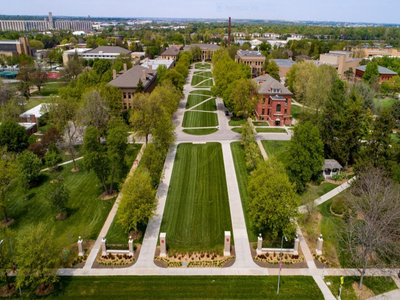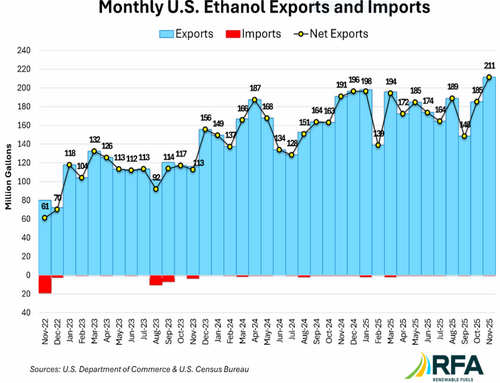By Geitner Simmons, University of Nebraska
American agriculture has a growing need to strengthen its defenses against cyber assaults. The computers, sensors, GPS and cloud-based data systems that help producers boost productivity also increase the chances for cybercriminals to worm their way into producers’ operational systems and data.
Cyberattacks on agribusinesses in recent years have demonstrated hackers’ ability to shut down processing plants, halt livestock purchases and cost corporations millions through ransomware attacks.
In the face of these threats, the University of Nebraska System (NU) is a key resource for strengthening agricultural cyber defenses. Multiple NU projects with various funding sources, including federal government grants, are in the forefront of analyzing and addressing key vulnerabilities.
“Many of the technologies used in precision agriculture, such as drones, have been designed for use and affordability before data security. They are also readily available off the shelf, making them potential targets for those with malicious intent,” said Meghan Jackson, director for food, agriculture and environment security at the National Strategic Research Institute (NSRI) at the University of Nebraska. “Disruptions to an automated irrigation system or hacking of a dairy’s industrial control system could result in the failure of an entire season and even death of animals. Building resiliency into existing and new precision agriculture is critical to protecting America’s growing digital landscape.”
As one of only 15 University Affiliated Research Centers (UARCs) in the country designated by the U.S. Department of Defense, NSRI provides perspective and clarity regarding the evolving national security concerns of stakeholders within the federal government. It partners with the Institute of Agriculture and Natural Resources (IANR) at the University of Nebraska-Lincoln (UNL), which brings forward 150 years of experience in agricultural research and a deep commitment to producers and consumers, to forge research and development that matters to the DOD and beyond.
Among the many examples of NU’s growing impact on agricultural cybersecurity, researchers have strengthened the defense of autonomous agricultural vehicles against hacking, collaborated to research cyber effects and created a cybersecurity curriculum for producers and food processors.
Defense of Autonomous Agricultural Vehicles
Nebraska agricultural producers rank second in the nation in their use of precision agriculture technology, with 55% of producers applying it to soil moisture monitoring or livestock feed management, the U.S. Government Accountability Office reports.
“Farmers and producers are focusing on getting their inputs correct but not really on cybersecurity,” said Dr. Santosh Pitla, professor of advanced machinery systems in the UNL biological systems engineering department. “We haven’t gotten to the point where we’re training them on that. So, this is a huge opportunity for us to strengthen producers’ cybersecurity understanding. It’s especially possible at a place like the University of Nebraska, where we stand out for producer-centric research. That’s very powerful.”
Dr. Pitla and colleagues collaborated with Dr. George Grispos, associate professor of cybersecurity in the School of Interdisciplinary Informatics at the University of Nebraska at Omaha (UNO), to develop a Security Testbed for Agricultural Vehicles and Environments (STAVE), believed to be the first testbed to analyze cyber vulnerabilities for agricultural equipment. STAVE, a board-mounted electronic-computational device, emulates the operations of Flex-Ro, an autonomous ag robot developed by UNL biological systems engineering researchers, to check for cyber concerns.
This collaboration among NU campuses stands out by pioneering a groundbreaking multidisciplinary approach in agriculture-focused cybersecurity research: The scientists combined advanced mechanical design with sophisticated cyber analysis. This interdisciplinary method draws on NU’s world-class expertise in those fields to produce a notable advancement in analyzing cyber-ag vulnerabilities.
Dr. George Grispos, associate professor of cybersecurity in the School of Interdisciplinary Informatics at the University of Nebraska at Omaha, presents at the food, agriculture and environment security workshop in March 2023 at the University of Nebraska-Lincoln. Dr. Grispos has received nearly $3.5 million in funding from various funding mechanisms including the National Science Foundation, Department of Justice, and the Department of Homeland Security.
In another project, UNL faculty are leading the National Agricultural Producers Data Cooperative (NAPDC), a multi-institutional working group, to create a cyber framework so producers can efficiently access precision-ag data — all in a cyber-secure system. University and private-sector scientists from across the country met in Lincoln last August for an NAPDC conference organized by UNL faculty.
“One of the objectives of the NAPDC is ensuring long-term data security and privacy as a key characteristic of a national, public data ecosystem for agricultural producers,” said Dr. Jennifer Clarke, professor and director of Quantitative Life Science Initiative at UNL. “We have current projects exploring methods for data privacy and secure data transfer, and we are hosting a data governance structure informed by producers.”
Research for Cyberattack Effects
UNL is taking a major step forward on the cybersecurity front by developing the Agricultural Security Operations Center (AgSOC), a collaborative effort between various departments, including the agricultural research division, biological systems engineering, information technology and others in partnership with NSRI and the company Splunk.
The AgSOC will eventually monitor critical equipment across the university’s 40,000 research acres and facilities, including irrigation equipment, monitoring stations associated with the Nebraska Mesonet and collection points for NFarms, UNL’s multidisciplinary precision agriculture research complex operating on 3,000 acres. This will help ensure data security during research studies and provide the university with a test bed for the development of new cybersecurity methods to protect American agriculture.
To read entire report, Click Here.



